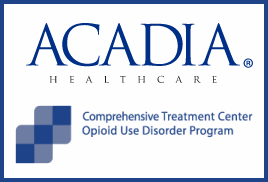 There’s a new spin being proposed on the dispensing of methadone to Opioid Use Disorder (OUD) patients. A federally-funded project is underway between Scene Health and The University of Washington in which patients video themselves taking their daily methadone dose, and then submit that video to the treatment provider.
There’s a new spin being proposed on the dispensing of methadone to Opioid Use Disorder (OUD) patients. A federally-funded project is underway between Scene Health and The University of Washington in which patients video themselves taking their daily methadone dose, and then submit that video to the treatment provider.
The project is evaluating this new modified approach that falls somewhere between in-person daily dosing and unsupervised take home dosing.
This new approach is currently being referred to as Video DOT (video direct observation therapy) and has been successfully implemented with other health issues including hepatitis C, asthma, and diabetes.
While this experiment seems appealing at first glance, it does raise legitimate questions about the ability to insure proper safety protocols with the provision of methadone medication to new patients. The project may possibly demonstrate the usefulness of Video DOT methadone dosing. But assuming this new approach one day becomes common practice, it will be important that physicians or clinics have in place a procedure for quickly reclaiming methadone doses that are not ingested on schedule.
Imagine a new patient receives 7 take home doses of methadone, but then only sends in the required video of their medication use on day one. At what point does the prescribing clinic intervene, and how will the unaccounted for doses be retrieved?
Approved Opioid Treatment Programs currently have “callback” procedures in which stable patients are randomly selected to return to their home clinic with their unused take home doses. This allows the clinic medical staff to perform a medication count, and it acts as a safeguard to insure patients are taking their medication as prescribed.
Patients who have earned take home privileges through months of treatment progress are less inclined to divert or misuse methadone than someone who just started treatment. New patients must be inducted gradually on a stabilizing dose of methadone. And time is typically needed to help these patients adjust to methadone while eliminating use of all other illicit substances. This is where the benefit of a structured treatment program is most relevant. OTP’s provide extremely valuable life management skills training in conjunction with medication therapy.
It remains to be seen if “easy access” to methadone is truly an advancement in care, or a step backwards in accountability & safety for patients and the public.

 Follow
Follow

 The need for social support in recovery is a significant factor. Not only is successful recovery an ongoing challenge, but it is a journey which is greatly helped through positive connection with others.
The need for social support in recovery is a significant factor. Not only is successful recovery an ongoing challenge, but it is a journey which is greatly helped through positive connection with others. 
 The faces of recovery are as diverse as you can imagine. Decades ago, there were common stereotypes of addicts as people who looked a certain way and likely came from a shady side of the tracks.
The faces of recovery are as diverse as you can imagine. Decades ago, there were common stereotypes of addicts as people who looked a certain way and likely came from a shady side of the tracks. Opioid addiction is one of the more challenging substance use disorders to confront and manage because of its physical dependency characteristics. Once the process of physical addiction has taken hold, avoiding daily withdrawal becomes a high hurdle.
Opioid addiction is one of the more challenging substance use disorders to confront and manage because of its physical dependency characteristics. Once the process of physical addiction has taken hold, avoiding daily withdrawal becomes a high hurdle.


